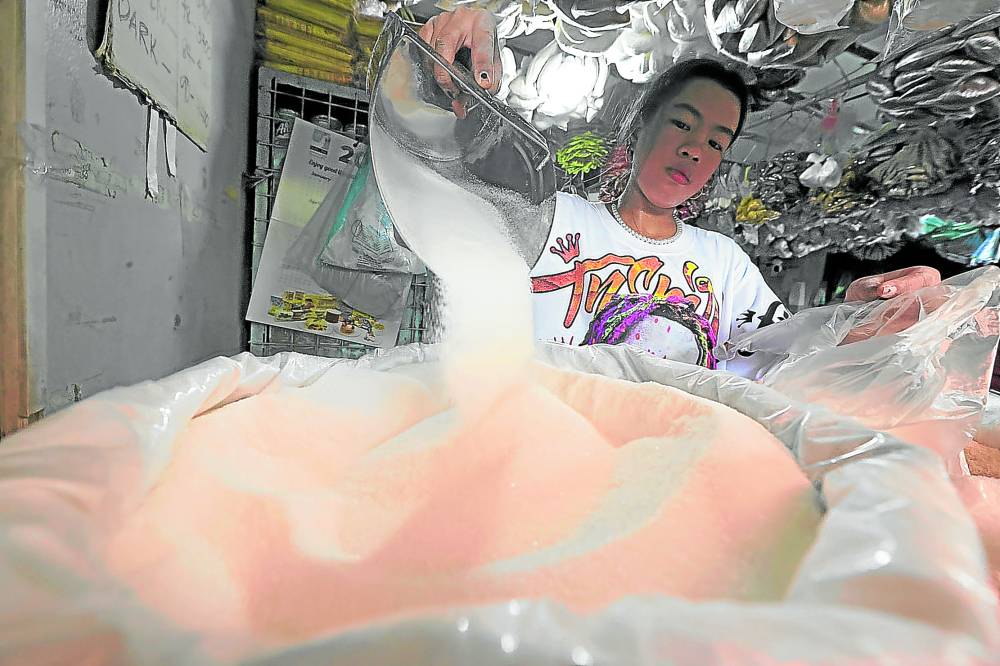
Mary Joy Gumarsa, assits customers at a stall selling sugar and other merchandise in Marikina Public Market, Marikina City. —Inquirer file photo/Grig C. Montegrande
MANILA, Philippines — The Department of Agriculture (DA) has ordered the Sugar Regulatory Administration (SRA) to closely monitor the “alarming volume” of “other sugars” in the market, which a group said could be “highly detrimental” to the sector if allowed to remain unregulated.
In a statement, Agriculture Secretary Francisco Tiu Laurel Jr. told the SRA to “look into the actual volumes of other sugars coming into the country and, if warranted, require them to acquire clearances as well.”
Sugar stakeholders earlier raised the issue with the DA chief, noting that other sugars have been present in the Philippines for the past eight years.
READ: Sugar Regulatory Administration
“This volume of sugar premixes represents about 4 million bags of sugar, amounting to roughly P10 billion and the continued lack of regulation for these sugar-based products is highly detrimental to the sugar industry,” United Sugar Producers Federation president Manuel Lamata said in a statement.
Stagnant demand
Other sugars include glucose, sucrose, maltose, dextrose, maltodextrin and lactose, among others.
Lamata said their presence in the market might be the reason why sugar demand has “remained constant in the last 10 years or so, despite the growth of population.”
According to the DA, only high fructose corn syrup is being strictly regulated.
Lamata said the other sugars were not regulated as previous administrations “purposely ignored” the issue.
“There is no reason for them to import this, as they should buy local sugar first. We must use locally produced sugar,” he told the Inquirer.
Lamata said that other sugars were being used in various products—from food to drinks—as a substitute for natural cane sugar.
“The only purpose is to lower production costs for more profits for the companies at the expense of the local farmer. We detest this practice of buying and helping other farmers from other countries,” he said.
Asked about the potential impact on health, Lamata said they had asked the DA to have both the Food and Drug Administration and the Department of Health examine if the other sugars were safe for human consumption.